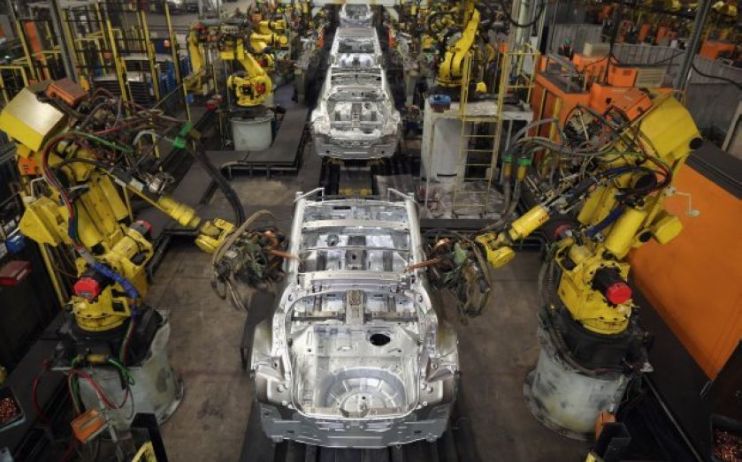UK PMIs: Manufacturing recovery continues despite fresh lockdown fears

Britain’s manufacturing sector continued its strong recovery from the coronavirus slump in September, although it dropped off the record pace set in August.
The IHS Markit/Cips manufacturing purchasing managers (PMI) index stood at 54.1 in September, with any score above the 50 mark indicating growth.
In August, the index recorded a score of 55.2, its highest reading in two and a half years.
September’s reading was slightly lower than a flash reading of 54.3.
Today’s reading means that the PMI has remained above its no-change mark of 50 for four successive months, its longest sequence in expansion
territory since early-2019.
IHS Markit said that September saw higher production due to more firms reopening and staff returning to work.
A further increase in new orders, including for exports, also helped push production volumes higher.
Rob Dobson, director at IHS Markit, said: “September saw UK manufacturing continue its recovery from the steep COVID-19 induced downturn.
“Although rates of expansion in output and new orders lost some of the bounce experienced in August, they remained solid and above the survey’s long-run averages.
“Business sentiment remained positive as a result, with three-fifths of UK
manufacturers forecasting a rise in output over the coming year.”
Before the Open newsletter: Start your day with the City View podcast and key market data
EY Item Club chief economist Howard Archer said: “The purchasing managers survey pointed to manufacturing expansion losing a little momentum in September after reaching a 30-month high in August.
“Nevertheless, the sector achieved a fourth month of growth and at a still decent rate.
“Employment in the manufacturing sector fell for an eighth month running, but the rate of decline did at least slow to the weakest since February.
“Nevertheless, the further decline in jobs provides the context for the Chancellor’s further support for the labour market with the recently announced Jobs Support Scheme.”
However, Samuel Tombs, chief UK economist at Pantheon Macroeconomics, said that he expected production to fall over the next half year.
“We expect production to trend down over the next six months, as demand from companies for investment goods declines”, he said.
“Surveys of corporate investment intentions remain extremely weak, consistent with capital goods production falling back once again.”
Deloitte’s UK partner Duncan Johnston pointed out that even though the sector’s recovery may continue, it is at a slowing pace.
“There are some worrying signs such as rising input prices and further job losses last month”, he said, singling out two sectors that are particularly important to the UK economy: commercial aerospace and automotive.
Therefore, “manufacturing leaders are eagerly awaiting the government’s revamped industrial strategy to provide much-needed impetus for recovery, especially in areas outside the South-East”, Johnston added.
Across the Eurozone as a whole, manufacturing hit 53.7 in September, an increase on August’s 51.7 reading.
The growth across the region was led by especially strong manufacturing in industrial powerhouse Germany, where the PMI hit its highest level in 26 months.